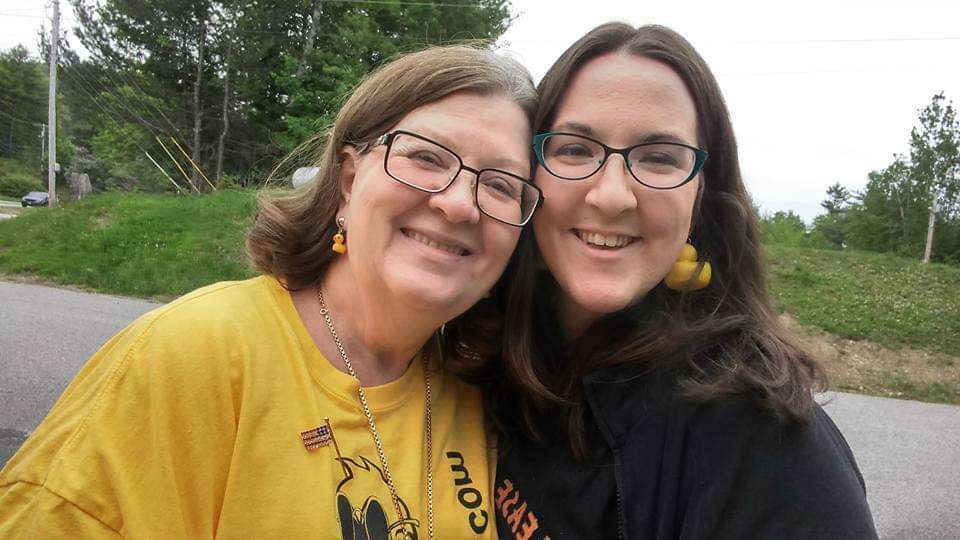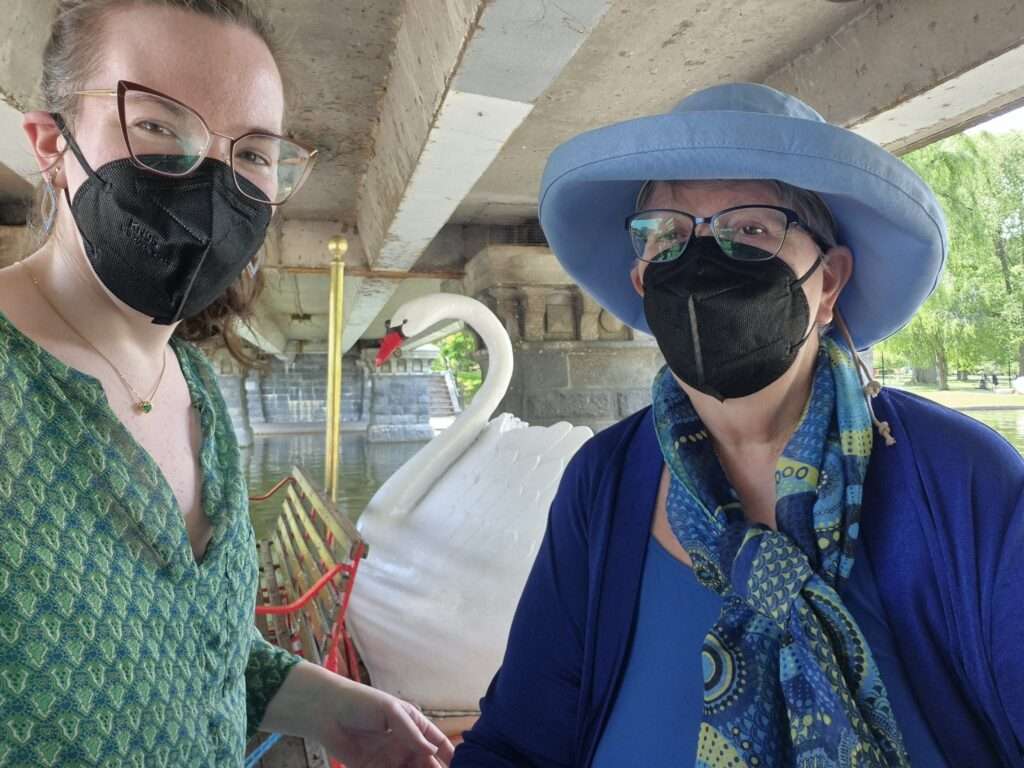

Over the past few years, 75-year-old Lynda M. has been in and out of the hospital. She is living with a spinal condition and has had a couple of falls. She’s also had pneumonia—twice.
For every emergency and appointment, her daughter, Sarah, has been there to help with her care, all while trying to work three jobs. That’s when she learned about the AgeSpan Personal Care Attendant (PCA) program, which allowed Sarah to get paid for her caregiving.
“For me, the program was really a godsend,” says Sarah. “Trying to work multiple jobs and get her to different specialist appointments on different days—it was hard. We were making it work, but it was exhausting.”
Through the PCA program, older adults and people living with disabilities can hire their own PCA worker, giving them the ability to manage their own care. For many, that means hiring a friend or family member. For Lynda, it meant putting her personal needs in the hands of someone she trusts.
“I think older people have a fear of trusting someone, especially if you are inviting them into your home,” says Lynda. “But this program is not about someone ordering you around. It’s the opposite. It’s focused on your care and what you feel you need.”
To qualify for the PCA program, participants must be on Medicaid with MassHealth Standard or CommonHealth or be enrolled in a Senior Care Options (SCO) or OneCare plan. They must also be living with a chronic condition or disability and need help with at least two activities of daily living such as bathing, dressing, or mobility.
Ongoing support
AgeSpan Skills Trainers work with consumers in the program to understand their care plan and how to hire, schedule, and pay their PCA worker. When Lynda and Sarah began in the program during the Covid-19 pandemic, Skills Trainer Dana Ouk made things as easy as possible during a scary time.
“She took such an interest in mom’s case on a personal level and really helped us navigate the telehealth visits with her,” Sarah says. “The whole AgeSpan team has been amazing. Especially in that first year, there are so many visits to make sure that you feel good and supported and comfortable.”
Since that first year, Lynda says regular follow-up meetings with the advisory team and her skills trainer have been a valuable way to share information. She says Sarah has not only learned skills that have made her a great caregiver, but also an advocate for her mom.
“At appointments, I marvel at listening to her,” says Lynda. “It amazes me how Sarah can remember things and talk directly to my doctor. I wish I had done this years ago.”
Confidence in caregiving
Sarah agrees it’s a big plus to be present in a way she would not have been able to when she was working.
“I didn’t have to try to find out what the doctor said second, third, or fourth hand,” says Sarah. “I got to be the one to go with her for everything.”
Through the program, PCA workers like Sarah can take additional training, which gives them more skills and self-confidence. Sarah says because the AgeSpan PCA program is flexible and self-directed, there’s really no downside to applying. In fact, both say they wish they had discovered the program earlier.
“If we had gotten into the program sooner, it would have relieved a lot of the pressure and anxiety,” says Sarah. “I could just help and support mom in healing. Now we get to enjoy things a lot more without all that stress.”
